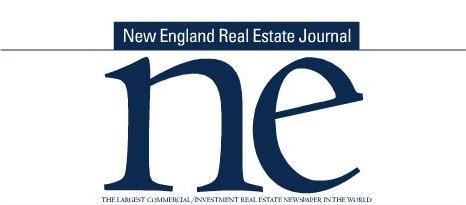As we slowly work our way out of the pandemic, Rhode Island continues to see signs of a recovery but as always there is a good amount of caution in how we will recover. The latest Current Conditions Index (CCI) as compiled by Leonard Lardaro of the University of Rhode Island, showed a significant increase over the previous month (April versus March). The increase would indicate that the state is getting closer to pre-pandemic levels, with the help of federal and state monetary and fiscal stimulus. From a real estate perspective, while there is no evidence of negative impact on values, activity continues to increase only being contained by a lack of inventory. While the overall commercial market has not seen the upward pressures being exhibited in the residential market, upward pressure both on sale prices and rents, especially in the industrial market, is clearly evident.
In the industrial market, all indicators have trended upward. Well located properties with amenities such as ceiling height and outdoor storage are not lasting on the market. Recently, a lease was signed on a 49,000± s/f facility with tenant being responsible for almost all of the improvements necessary for their occupancy. This trend does not appear to subsiding, again based upon the lack of inventory and the cost of new construction.
Based off of CoStar analytics, vacancy in Providence multi-tenant office properties appear to have peaked in Q1 with a rate of approximately 14.3%, the past quarter vacancy rates have shrunk a percentage point to 13.2%, representing approximately 38,000 s/f. The five-year average vacancy rate for Rhode Island is about 11.55%. Office holds the potential for being the biggest disruptor in the downtown and metro areas. Returning back to the office looks different for every organization. Factors such as company size, vaccine distribution, productivity rates and employee expectations all impact the companies individualized plans. If a company’s policy is to return everyone to full hours then they may need more square footage to spread out. Or if they bring staff back on a restricted schedule we may see offices look more like co-working spaces. With each organization curating their own plan to their specific needs it is difficult to predict what the market will look like, but we believe that by Q2 of 2022 we will have a clearer picture of how office space post pandemic will be trending.
The retail market continues to lag historical performance. Retail sales began to dip at the start of Q2 mainly due to higher cap rate entities being absorbed. Investors continue to hold interest in Rhode Island and seem to have an appetite for institutional grade net lease investments. The most recent notable sales was the 84,455 s/f Cottage Plaza in Pawtucket that sold for $21.65 million, which was down from its last sale in 2017. The lasting effects of the coronavirus are evident in the retail market, with the shift in sales to e-commerce. Even with everything “opening back up” the market is trending to less storefront and more distribution needs. The retail market was trending this way pre-pandemic and the pandemic accelerated the change. It is important to note that year-over-year in store sales have increased in retail but that is primarily evidence of the impact of the pandemic.
Construction, while costly is continuing, specifically on land that was occupied formerly by Interstate 195 in Providence. Since May the cost per thousand of a 2×4 has fallen from $1,700 to $1,453, which is still significantly more expensive than the pre-pandemic traded cost of $300 to $500. Most analysts see prices moderating in the third or fourth quarter, but this will still impact any new construction. There are other issues looming over the construction market such as supply chain delays and worker shortages. Despite the hurdles construction in the Rhode Island market continues. The Beatrice Hotel, a high end 48 room boutique hotel in downtown Providence was completed over the spring. There is a proposal for a 12-story apartment building in the Jewelry District that looks like it may yield a positive outcome. There was also a notable land sale of 17 acres in Cranston on Comstock Parkway, where the new owners’ plans for industrial development with primary focus on distribution.
If we continue the rate of recovery and activity that we have been seeing Rhode Island’s commercial real estate market will be in healthy condition post pandemic. Optimism is conservatively high and upward pressure on the market is moderately present. The biggest wildcard is the future of the office market, but time will tell as plans for return continue to be executed.
Tom Sweeney, SIOR, is president and Eric Schultheis is a sales agent with Sweeney Real Estate & Appraisal, Providence, R.I.

